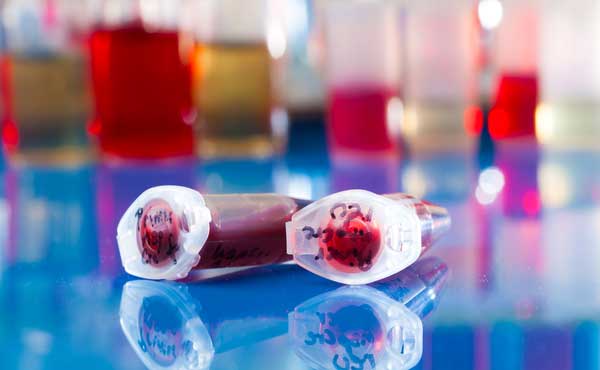When we were young, we learned that starfish and salamanders can regenerate but humans can’t. Well, that’s only partially true. While we can’t regrow an entire limb, our bodies do have the ability to regenerate in amazing ways. Hi, I’m Kate Pirouette, one of the producers of the Doctor’s Pharmacy podcast. We are constantly learning new things about how food and nutrients impact the body. In this article, Dr. Hyman speaks with renowned physician scientist Dr. William Li about activating stem cells with food to boost the body’s natural regenerative abilities.

What Are Stem Cells and How Do They Help Us Regenerate?
Stem cells are special cells that can develop into many different cell types in the body. When a sperm and egg join, they form a single stem cell that multiplies rapidly, eventually forming all the cells and tissues that make up a human body. After we are born, some stem cells remain in the body, residing mostly in bone marrow but also in the lining of the intestines and other tissues.
These adult stem cells help regenerate tissues throughout our lives. For example, stem cells allow our hair to regrow after falling out, our gut lining to rebuild every few days, and our livers to regenerate even after injury or partial removal. Stem cells are also present in the heart and brain, helping regenerate blood vessels, nerves, and other tissues.
So in short, stem cells are unspecialized cells that can develop into specialized cell types. They can also divide to create more stem cells (self-renew) and migrate to damaged tissues to stimulate healing (regeneration).
What Factors Can Damage Stem Cells?
While stem cells promote constant regeneration, certain factors can damage them and impair their functioning:
- Alcohol – Heavy, chronic alcohol use can damage and deactivate stem cells.
- High blood sugar – Diabetes and metabolic disorders characterized by high blood sugar negatively affect stem cell function.
- Stress – High levels of stress can stun and deactivate stem cells, blunting tissue regeneration.
- Aging – Stem cell number and potency diminishes as we get older.
So while moderate alcohol, occasional stress, and aging are normal parts of life, it’s ideal to minimize excessive amounts of these stem cell stressors whenever possible.
How Can We Enhance Stem Cell Function Through Diet?
The exciting news is that research has uncovered several ways we can enhance our stem cells’ regenerative abilities through simple dietary choices. Let’s look at some of the key findings:
1. Mediterranean Diet
A Spanish study on elderly subjects found that those eating a Mediterranean-style diet had 5X more circulating stem cells compared to non-Mediterranean eaters. These stem cell boosting effects are thought to arise from the overall pattern of plant-based foods, healthy fats, and limited meat and sugars that characterize the Mediterranean diet.
2. Green Tea
Green tea contains plant compounds like EGCG that can increase the number and activity of stem cells. But black tea may also offer similar benefits. Studies show regular black tea consumption can double stem cell numbers.
3. Dark Chocolate
Rich in flavonols like epicatechin, the cocoa bean is emerging as a stem cell superfood. In a UCSF clinical trial, subjects who drank high-flavonol dark chocolate twice a day saw a doubling of stem cell levels after just one month. This corresponded with significantly improved blood flow.
4. Berry Extracts
Extracts of blueberries and other antioxidant-rich berries contain proanthocyanidins that research shows can boost both the number and function of stem cells. Eating berries daily provides an intake of these regenerative compounds.
5. Broccoli Sprouts
Containing high levels of sulforaphane, broccoli sprouts are able to stimulate stem cell proliferation and enhance their migration and function – leading to better tissue regeneration.
6. Fasting
Intermittent fasting helps decrease insulin and mTOR – two pathways that otherwise limit stem cell regenerative activities. Periodically fasting gives stem cells the break they need to maximize their healing potential.
As you can see, stem cells respond positively to several foods that we’d typically consider healthy. The natural plant compounds in these foods provide instructions to stem cells to multiply, migrate, specialize, and self-renew. This leads to better tissue regeneration and overall health.
How Do Stem Cells Promote Healing and Anti-Aging?
Stem cells serve as an internal repair system, replenishing specialized cells and encouraging regeneration of tissues and organs. Here are some of the top ways stem cell activation supports healing and anti-aging:
Cardiovascular Health
Stem cells help regenerate blood vessels and repair damaged tissue in the heart. Activating stem cells can therefore improve cardiovascular function and oxygen supply to organs.
Brain Health
Neural stem cells in the brain proliferate and specialize into new neurons and other brain cells. More active stem cells means better neurogenesis, plasticity, and cognition as we age.
Metabolic Health
Stem cells reside in metabolic tissues like fat and liver where they sense metabolic stressors. Activated stem cells help rejuvenate insulin sensitivity and liver function.
Immune Health
Stem cells reside in bone marrow where they produce diverse, specialized immune cells. Robust stem cell function keeps the immune system strong.
Skin Health
Skin stem cells regenerate the various layers of the skin throughout life. Boosting these cells results in smoother, youthful looking skin.
Injury Recovery
Stem cells migrate to sites of injury, differentiating into the needed cell types and promoting healing through growth factor secretion.
Through these regenerative effects in diverse tissues, properly functioning stem cells are critical for staying biologically youthful as we age. Supporting our stem cells should therefore be a key pillar of any anti-aging or longevity-promoting lifestyle.
Conclusion
While we can’t regrow entire limbs like salamanders, our bodies demonstrate amazing regenerative capacity thanks to adult stem cells. Certain stressors like excess alcohol, chronic high blood sugar, stress, and aging can damage stem cells over time. But research shows we can counteract this through dietary choices that provide regenerative instructions to stem cells.
Compounds in foods like the Mediterranean diet, green tea, dark chocolate, berries, broccoli sprouts, and fasting have been shown to activate stem cells – enhancing their proliferation, function, and tissue regenerating effects. Taking advantage of these stem cell boosting foods is a safe, accessible way to support the body’s innate healing abilities. A diet rich in regenerative foods provides the key to staying biologically youthful as we age.
